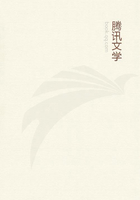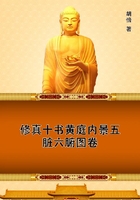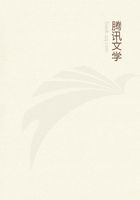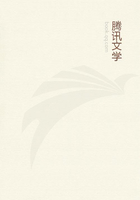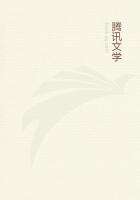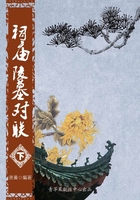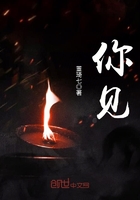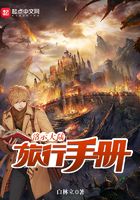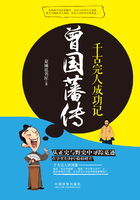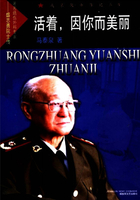O, pluck me out, for pity's sake, From this inextricable brake, Begirt with brambles round!""Alas, my lord! my master dear!
What ugly chance hath dropped thee here?"Exclaimed the varlet youth.
"'T was gluttony"' the priest replied, With peerless folly by her side:
But help me straight,for ruth!"
By this were come the remnant rout;
With passing toil they plucked him out, And slowly homeward led:
But, all so tattered in his hide, Long is he fain in bed to bide, But little less than dead.--Tr.by Way.
A special development of the fable is the mock-epic "Reynard the Fox", one of the most noteworthy developments in literature of the Middle Ages.It is an elaborate, semi-epic set of stories in which Reynard is the embodiment of cunning and discreet valor, while his great enemy, Isegrim, the wolf, represents stupid strength.From the beginning of this set of fables, there is a tone of satirical comment on men and their affairs.In the later developments of the story, elaborate allegories are introduced, and monotonous moralizings take the place of the earlier, simpler humor.
The fable reached its greatest development in France, but all Europe shared in making and delighting in it.
Our extracts are taken from Caxton's translation of the Flemish form of the legend.
FROM REYNARD THE FOX.
Part II.Chapter 33.
REYNARD AND ERSWYNDE (THE WOLF'S WIFE) AT THE WELL.
Then spoke Erswynde, the wolf's wife, "Ach! Fell Reynard, no man can keep himself from thee, thou canst so well utter thy words and thy falseness; but it shall be evil, rewarded in the end.How broughtest thou me once, into the well, where the two buckets hung by one cord running through one pulley which went one up and another down? Thou sattest in one bucket beneath in the pit in great dread.I came thither and heard thee sigh and make sorrow, and asked thee how thou camest there.Thou saidst that thou hadst there so many good fishes eaten out of the water that thy belly wouldst burst.I said, 'tell me how I shall come to thee.' Then saidst thou: 'Aunt, spring into that bucket that hangeth there, and thou shalt come anon to me.' I did so, and I went downward and ye came upward, and then I was all angry.Thou saidst, 'thus fareth the world, that one goeth up and another goeth down.' Then sprang ye forth and went your way, and I abode there alone, sitting an whole day, sore and hungry and acold.And thereto had I many a stroke ere I could get thence." "Aunt," said the fox, "though the strokes did you harm, I had leifer ye had them than I, for ye may better bear them, for one of us must needs have had them.I taught you good; will you understand it and think on it, that ye another time take heed and believe no man over hastily, is he friend or cousin.For every man seeketh his own profit.
They be now fools that do not so, and especially when they be in jeopardy of their lives."Part II.Chapter 35.
HOW ISEGRYM PROFFERED HIS GLOVE TO THE FOX FOR TO FIGHT WITH HIM.
The wolf said, "I may well forbear your mocks and your scorns, and also your fell, venomous words' strong thief that you are.Ye said that I was almost dead for hunger when ye helped me in my need.That is falsely lied; for it was but a bone that ye gave to me; ye had eaten away all the flesh that was thereon.And ye mock me and say that I am hungry here where I stand.That touched my worship too nigh.What many a spighty word have ye brought forth with false lesings.And that I have conspired the king's death, for the treasure that you have said to him is in Hulsterlo.And ye have also my wife shamed and slandered that she shall never recover it.And I should ever be disworshipped thereby if I avenged it not.I have forborne you long, but now ye shall not escape me.I cannot make here of great proof, but I say here before my lord, and before all them that been here, that thou art a false traitor and a murderer, and that I shall prove and make good on thy body within lists in the field, and that, body against body.And then shall our strife have an end.And thereto I cast to thee my glove, and take thou it up.I shall have right of thee or die therefor.
Lyings.
Reynard the Fox thought, "how came I on this company? We been not both alike.I shall not well con stand against this strong thief.All my proof is now come to an end." Of equal strength.Know how to.
Yet, thought the fox, "I have good advantage.The claws of his fore feet been off and his feet been yet sore thereof, when for my sake he was unshod.He shall be somewhat the weaker."Then said the fox, "who that sayeth that I am a traitor or a murderer? I say he lieth falsely, and that art thou especially Isegrym.Thou bringest me there as I would be.This have I oft desired.Lo! there is my pledge that all thy words been false and that I shall defend me and make good that thou liest.
The king received the pledges and amitted the battle, and asked borrows of them both, that on the morn they should come and perform their battle and do as they ought to do.Then the Bear and the Cat were borrows for the wolf, and for the Fox were borrows Grymbert, the dasse, and Bytelnys.
Admitted.Pledges.The badger.A small fox.
The elder daughter of the apes.
TALES.
French mediaeval literature includes many tales less elaborate in form and less "heroic" in subject than the epics and romances and without the satire and humor of the fables.The best of them are the love stories, and of these the most beautiful is "Aucassin and Nicolette", by an unknown trouvere of the thirteenth century.
It is an alternation of prose narrative and dainty narrative lyrics.The story is that of two lovers parted temporarily by the pride and cruelty of the youth's father.But, remaining true to each other, they are, after many vicissitudes, happily united.
Our extracts are from Bourdillon's beautiful translation.
FROM AUCASSIN AND NICOLETTE.
Sec.1.--Who were fain good verse to hear, Of the aged captives' cheer, Of two children fair and feat, Aucassin and Nicolette,--What great sorrows suffered he, And what deeds did valiantly For his love, so bright of blee?

